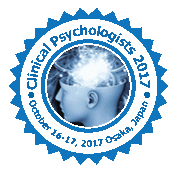Nyuiemedi Agordzo Edoh-Torgah
Counseling Psychologist, Ghana
Title: Traumatic experiences, social support and traumatic growth
Biography
Biography: Nyuiemedi Agordzo Edoh-Torgah
Abstract
Introduction & Aim: Individual life trajectories are determined through various paths of which the unique lived experiences and broad social changes influence individual life courses. Adults who survived child labor were exposed to traumatic experiences with some able to cope and survive; many unable to survive. Yet, those who do cope and survive mostly do so with their personal resources and social supports received. The purpose of this study is to explore the relationship between traumatic experiences and social supports on one hand and how these supports, nested in their experiences, served as catalysts to survivors’ positive growth and adaption to life.
Methods: This is a phenomenological study using in-depth interview and focus group schedules to gather data to interpret and describe participants’ experiences. 11 participants were recruited aged 30 to 53 years and 3 to 15 years of child labor experiences. An ecological framework was developed and thematic analysis was done.
Findings: Adults who were child laborers had experienced varied difficult childhood abuses such as sexual, verbal, emotional, physical and neglect. The study further found that significant others served as protective factors by providing practical help, advice and recognizing adult survivors’ personal resources. Though participants received social supports, supports from significant others were more helpful than institutional supports. The difficult experiences survived coupled with social supports received promoted individuals’ traumatic growth in the areas of developing positive worldview, perceived self-efficacy, resilience and forgiveness.
Conclusion & Significance: Individuals with traumatic exposure experience difficult abuses that scar them psychologically. These individuals need much attention to deal effectively with their past traumas. The findings of the study have several implications for counselors, psychologists and school management.

